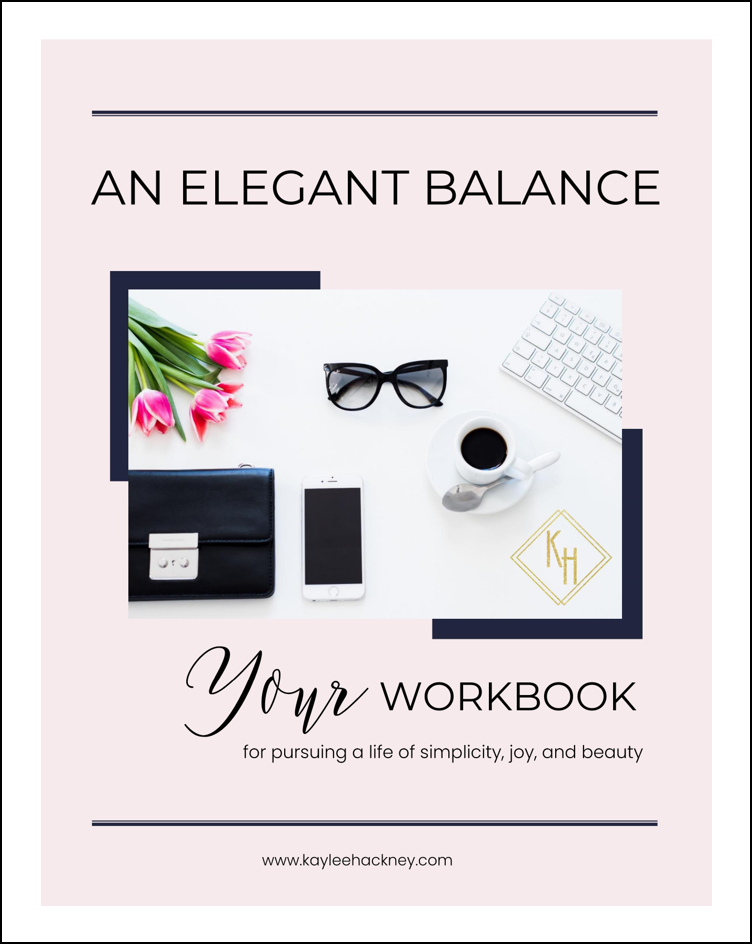Free Yourself from the Weight of Decision Fatigue
“Life is a matter of choices, and every choice you make makes you. ”
Prefer to listen?
For as long as I can remember, I have been enamored by anything French. Even as a little girl, I dreamed of visiting Paris and was extremely disappointed when I realized that I wouldn’t be able to study the French language until 9th grade.
During my sophomore year of college, I studied abroad in Angers, France. One thing that stood out to me was the simplicity of life there. Here I was, an American 20-year old girl with two giant hot pink suitcases packed full of everything I could possibly need in the next 6 weeks. I probably had enough clothes to wear something different each day. Imagine my surprise when my French teacher wore the exact same 10 pieces of clothing every single day and still exuded that chic, enviable “Je ne sais quoi” that French women are so well-known for. This was my first introduction to a capsule wardrobe. I’m not alone in these observations. Jennifer Scott has a wonderful Tedx Talk and “Madame Chic” book series where she details her experiences while studying abroad in France.
The capsule wardrobe isn’t just a French thing. If you search for images of Mark Zuckerberg, Steve Jobs and Barack Obama you will probably notice that each of them have adopted a “uniform”. By doing so, they are reducing the amount of choices they have and the decisions that they have to make.
Some sources (Sollisch, 2016; Krockow, 2018) suggest that we make approximately 35,000 decisions per day. Granted, it is hard to estimate the exact number of decisions any one person makes, I think we can all agree that when balancing work and family demands we are bombarded with decisions left and right.
It’s only 9:00am this morning and I’ve already made decisions like:
- What do I want to eat for breakfast?
- What are my kids going to eat for breakfast?
- What will my daughter wear to school today?
- Which shoes match her dress?
- How should I do her hair?
- Do I want water or coffee with my breakfast?
- Should I work out now or later?
- What do I want to wear today?
- How should I do my hair today?
- Should I write my blog post or respond to emails this morning?
The crazy thing is that there are little decisions embedded in each of those questions. Doing this all day long – making decisions for yourself, your children, your pets, maybe even your spouse – wears you down. This is why we tend to cringe at the question “What’s for dinner?” at the end of the day. Our brains are tired. We’ve talked about the important role that resources play in achieving a work-life balance. Our cognitive energy, just like our time and money, is a resource that can be drained over time. Making multiple decisions throughout the day, particularly complex or difficult decisions (Oto, 2012), drains our cognitive energy. This phenomenon is known as decision fatigue (Pignatiello et al., 2020; Vohs et al., 2014) and we typically respond in one of two ways:
1. Doing Nothing
2. Making impulsive or irrational choices
Neither of those outcomes are very appealing and living with the brain fog that accompanies decision fatigue does not feel easy or elegant. The good news? There are simple steps that you can take to reduce the number of decisions that you make each day, opening up mental space for things that matter!
Want to start creating your ideal work-life balance?
I’ve created this workbook just for you! Inside, I help you define what work-life balance looks like for you and share some tips on creating that balance.
You can get it by clicking the button below!
1. Make Important Decisions First
By making the important decisions early in the day, you ensure that you have the cognitive energy that is needed for complex and difficult decisions. If you know that you have an important decision to make, put it on your schedule and stick to it!
2. Don’t Answer Emails Right Away
Many of us have email inboxes that fill up as quickly as we can empty them. Technology, such as smart phones, makes it possible to be constantly connected and respond to these emails from anywhere. Yet, given what we know about decision fatigue and how our capacity to make quality decision diminishes throughout the day, we need to protect our cognitive energy and avoid using it up on answering emails first thing in the morning.
3. Adopt a Uniform
Like the French women I observed while studying abroad, we can create our own capsule wardrobes. Doing so eliminates the number of choices that we have each morning. If you do it right, your capsule wardrobe will consist of high-quality pieces that you love and that fit you perfectly. It eliminates the need to spend time or energy on deciding what to wear only to find that you don’t like it or that it no longer fits. It makes getting dressed in the morning easy. On the surface, wearing the same thing everyday may sound boring but limiting your wardrobe to key, high-quality pieces could actually have the opposite effect – it could be an iconic fashion statement.
If you’re a mother, you could also create capsule wardrobes for your children. My son wears a uniform to school, but also tends to have a sort of “uniform” at home. We have neutral colored basketball shorts and a variety of t-shirts that he can easily mix and match. Each Sunday he wears his 1 pair of jeans and 1 button-up shirt to church. Not only does this make it easier for me, but it helps him to not get overwhelmed with choices. He can confidently get dressed each day. Further, limiting the number of clothing items in your child’s closet means that you’re not wasting money on clothes they never wear.
4. Meal Planning
As mentioned above, I often dread the “What’s for dinner?” question at the end of a long day. We tend to make impulsive choices when we are experiencing decision fatigue. Despite my best efforts to eat healthy, I’m more prone to order carryout or make a quick, processed, not-so-healthy meal (macaroni and cheese with hotdogs, anyone?) when I am experiencing decision fatigue. The answer? Having a meal plan. If you take the time at the beginning of the week to plan out your meals and groceries, you can eliminate the need to make decisions around meals throughout the week.
Want to streamline it even more? Eat the same things throughout the week. For example, some weeks we eat scrambled eggs for breakfast every day, soup for lunch every day, and then dinner is where we shake things up! If you’re interested in meal planning but not sure where to start, make sure to check out my post “Meal Planning with Ease.”
5. Establish Some Routines
When decisions are automatic, you don’t have to waste any precious cognitive energy on deciding what to do, how to do it, or when to do it. By creating routines around the things you do every day, you can eliminate multiple decisions. I have streamlined my make-up routine to eliminate any unnecessary decisions (e.g., color of eyeshadow). I also have a weekly hair-routine. I know which days to wash my hair and which hairstyles are best on day 1, 2, and 3. Think about the decisions that you are faced with daily. Can any of them be streamlined? Can any of them be eliminated altogether?
6. Get Some Rest
Finally, one of the best ways to recover from decision fatigue is to make sure that you’re getting enough sleep. This can be difficult when it feels like your only free time is after the kids go to bed. But ask yourself if scrolling through social media or watching Netflix is worth the tradeoff.
Conclusion
I hope these tips are helpful for you as you pursue your elegant balance. Remember, you are the common denominator in your work-life balance. It’s imperative that you take exquisite care of yourself and that includes protecting your cognitive energy. I challenge you to think about where you can limit the number of decisions in your life. Do you have any strategies that you already use? I’d love to hear them! Leave a comment below or connect with me via Instagram or Facebook.
Have a beautiful, joy-filled week friends!
Is a better work-life balance one of your goals this year?
I’ve created a workbook just for you!
If you’re interested in creating a work-life balance characterized by simplicity, joy, and beauty, why don’t you start by checking out my Elegant Balance Workbook? In it, I help you define what work-life balance looks like for you and share some tips on creating that balance. I’ve said it before, and I’ll keep saying it – Balance doesn’t happen by accident.















Sharing this with you makes me smile – I love thinking back to the girl who felt confident and beautiful in that rainbow shirt and the girl who refused to attend her college classes in baggy t-shirts and Ugg boots and instead opted for a sequined top. Because despite what I think about those choices now, in each of those seasons I was intentionally using personal style to my advantage.